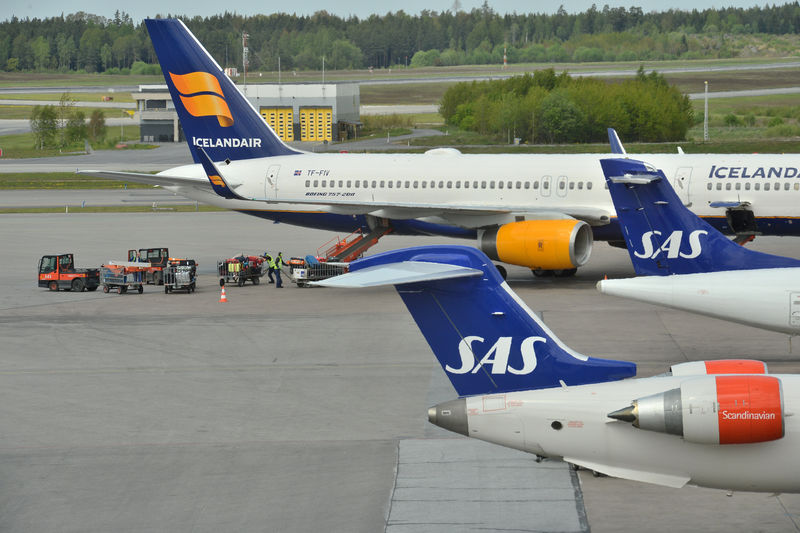This post was originally published on this site
https://i-invdn-com.akamaized.net/news/LYNXNPEC4J0JY_M.jpg
Investing.com — That airline bounce is already running into trouble.
The sector has been one of the biggest beneficiaries of the rotation into cyclical stocks over the last week, supported by announcements of flight resumptions and lockdown restrictions that will allow the industry to salvage at least some of the summer tourist season.
But individual companies aren’t out of the woods yet. Scandinavian flag carrier SAS (ST:SAS) fell 7.3% on Thursday morning after saying it would need more money from its biggest shareholders.
The governments of Sweden and Denmark both own stakes of between 14% and 15%, while Foundation Asset Management, an investment arm of the Wallenberg family, holds another 6.5%. The first two have already underwritten over $300 million in loans to the group since the pandemic struck.
Even though the European Union has relaxed its rules on state aid to help industry get through the crisis, that won’t be an easy sell: SAS had lost money already before the crisis started.
Meanwhile, Norwegian Air Shuttle (OL:NWC), which has only just fended off bankruptcy with a state-backed loan after a series of recapitalizations and debt restructurings, fell 7.4% after its first-quarter results were every bit as bad as feared, including a pretax loss of 3.3 billion kroner ($334 million) and the complete absence of guidance.
Both are still up smartly on the week – SAS stock has gained 14% and Norwegian Air Shuttle stock 45% – but the sharp moves downward underline how the stocks have essentially become a plaything for thrill-seekers rather than a secure long-term investment.
Across the Baltic, things are also looking less good for Deutsche Lufthansa (DE:LHAG), whose board has had to put off approval of its 9 billion-euro ($10 billion) bailout by the German government because of antitrust concerns in Brussels.
The EU has asked Lufthansa to give up lucrative slots at its hubs in Frankfurt and Munich in order to ensure a minimum degree of competition. However, the German government is determined to keep out low-cost airlines, the likeliest buyers of those slots, fearing a long-term slide towards job losses and the spread of looser employment relations in the sector.
Ryanair (LON:RYA) has already threatened to challenge the bailout in court.
Lufthansa has an effective monopoly on domestic flights within Germany after absorbing most of Air Berlin with government support three years ago. Domestic flights, which had come under fire before the pandemic because of their carbon footprint, have become more important for airlines since the pandemic because it’s where demand, and thus cash flow, is expected to recover first.
“We expect that the recovery will start with increased domestic demand followed by European and then intercontinental destinations,” SAS said on Thursday.
That scenario would be bad news for Norwegian, given that its big hope was to gather market share on the lucrative transatlantic market.
Air France, earlier this month, had managed to get its bailout through the Brussels process by promising to end shorter domestic flights (an arrangement that suits the French government because passengers are most likely to revert to the state-owned high-speed train network).
However, there are signs that the market is still prepared to back airlines that can adapt convincingly to the new situation. EasyJet PLC (LON:EZJ) stock rose 5.4% by mid-morning after saying it will cut up to 30% of its workforce – the equivalent of 4,500 jobs – to bring its cost base into line with reduced demand forecasts. It also raised its guidance for savings through deals to sell and lease-back some of its aircraft. That should reduce the company’s cash burn considerably as it prepares to resume flights in July. But given that it will still be operating at only 30% of capacity through the peak quarter, it should be no surprise if further measures are necessary later.

